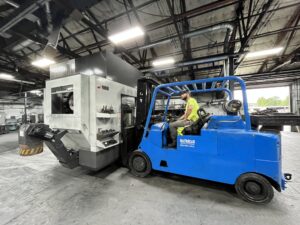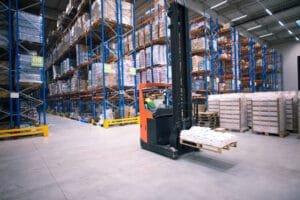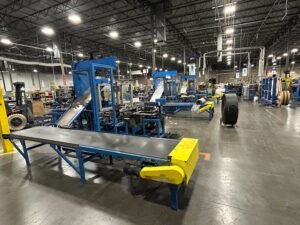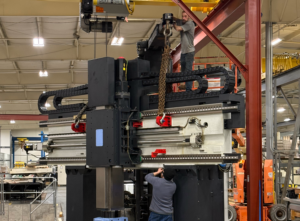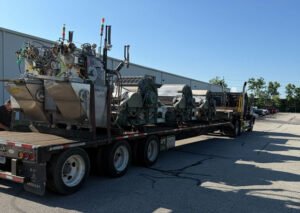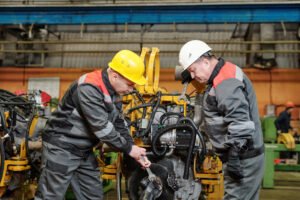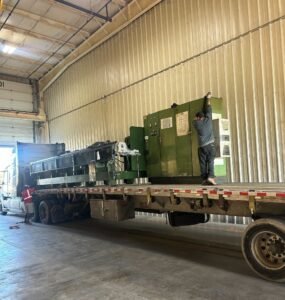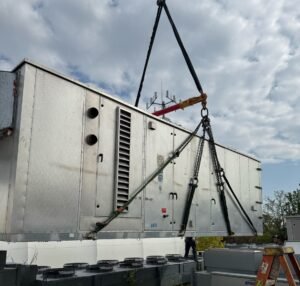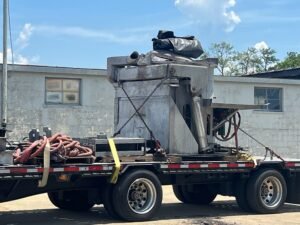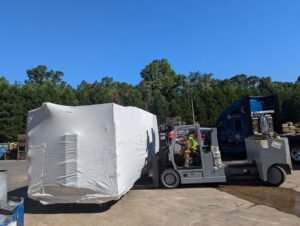In the dynamic landscape of industrial operations, achieving profitability requires not only consistent production but also an innovative approach to streamlining processes. Operational efficiency has a direct impact on reducing costs, enhancing productivity, and improving the overall bottom line. Companies aiming for sustained growth must adopt strategies to minimize waste, leverage technology, and align resources effectively. This article explores key methods to streamline operations and boost industrial profitability, offering insights into how industry leaders like Alltracon are transforming operations.
Embracing Lean Manufacturing Principles
Lean manufacturing is a systematic approach that focuses on reducing waste while maintaining or enhancing productivity. This philosophy centers on the idea that every step of the production process should add value to the final product.
Key Strategies for Lean Manufacturing:
- Identifying Waste: Categorizing waste into types such as defects, overproduction, waiting, and excess inventory to address inefficiencies.
- Continuous Improvement (Kaizen): Encouraging employees to identify and suggest improvements in their work environment.
- Just-in-Time (JIT) Production: Producing goods only as they are needed, reducing storage costs and excess inventory.
By applying these principles, organizations can optimize resource allocation and improve cost-efficiency without compromising quality.
Leveraging Automation and Technology
The advent of Industry 4.0 has revolutionized the industrial sector, introducing technologies that automate and streamline operations. Automated systems can perform repetitive tasks with higher precision, reducing human error and labor costs.
Technological Innovations Driving Efficiency:
- Robotic Process Automation (RPA): Automating tasks such as inventory tracking and assembly line production.
- Internet of Things (IoT): Connecting machines and devices to enable real-time data collection and predictive maintenance.
- Artificial Intelligence (AI): Analyzing production data to forecast demand, optimize supply chains, and improve decision-making.
By integrating technology, businesses can achieve higher productivity, enhanced scalability, and better resource utilization, directly contributing to profitability.
Optimizing Supply Chain Management
A streamlined supply chain ensures the efficient movement of materials, timely delivery of products, and effective cost management. Modern industrial environments demand agile supply chains capable of adapting to market changes.
Strategies for a Streamlined Supply Chain:
- Vendor Management: Establishing partnerships with reliable suppliers to ensure consistent quality and delivery.
- Demand Forecasting: Utilizing predictive analytics to anticipate market demands and adjust production accordingly.
- Inventory Optimization: Balancing stock levels to avoid overstocking or stockouts while minimizing holding costs.
An optimized supply chain reduces operational disruptions and enhances customer satisfaction, ultimately improving profitability.
Enhancing Workforce Productivity
A well-trained and motivated workforce is crucial for streamlining industrial operations. Investing in employee development, fostering a positive work culture, and implementing clear communication channels can significantly enhance productivity.
Steps to Boost Workforce Efficiency:
- Training and Upskilling: Providing employees with the skills needed to operate advanced machinery and adapt to evolving processes.
- Performance Metrics: Using key performance indicators (KPIs) to monitor and reward employee achievements.
- Team Collaboration: Encouraging cross-functional teams to work together on projects, leveraging diverse expertise.
By focusing on workforce productivity, organizations can achieve higher output rates and ensure consistent quality, further driving profitability.
Sustainability and Energy Efficiency
As industries face increasing pressure to adopt environmentally responsible practices, sustainability and energy efficiency have become vital components of streamlining operations. Reducing energy consumption and minimizing waste not only benefits the environment but also significantly lowers operational costs.
Steps Toward Sustainable Operations:
- Energy Audits: Identifying areas of excessive energy use and implementing corrective measures.
- Renewable Energy Sources: Transitioning to solar, wind, or other renewable energy solutions to reduce dependency on fossil fuels.
- Eco-Friendly Manufacturing Practices: Adopting methods that minimize waste and emissions, such as recycling materials.
Sustainability initiatives not only enhance operational efficiency but also improve brand reputation, attracting eco-conscious customers and investors.
Alltracon: A Leading Service Provider
Alltracon stands out as a pioneer in delivering cutting-edge solutions for streamlining industrial operations. With a focus on innovation and customer satisfaction, Alltracon provides services that encompass automation, supply chain optimization, and workforce management. Their expertise helps businesses achieve operational excellence and maximize profitability. By tailoring their services to meet unique client needs, Alltracon has established itself as a trusted partner for companies seeking to enhance efficiency and drive growth.
Streamlining operations is not merely an option but a necessity in today’s competitive industrial landscape. By embracing lean manufacturing, leveraging technology, optimizing supply chains, enhancing workforce productivity, and prioritizing sustainability, businesses can unlock significant profitability. Organizations like Alltracon exemplify the transformative potential of these strategies, setting a benchmark for success in the industrial sector.

